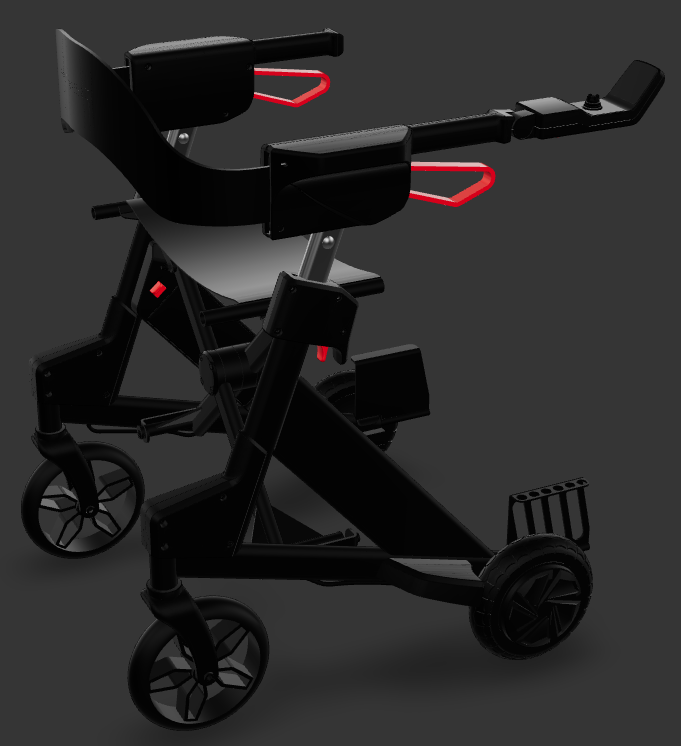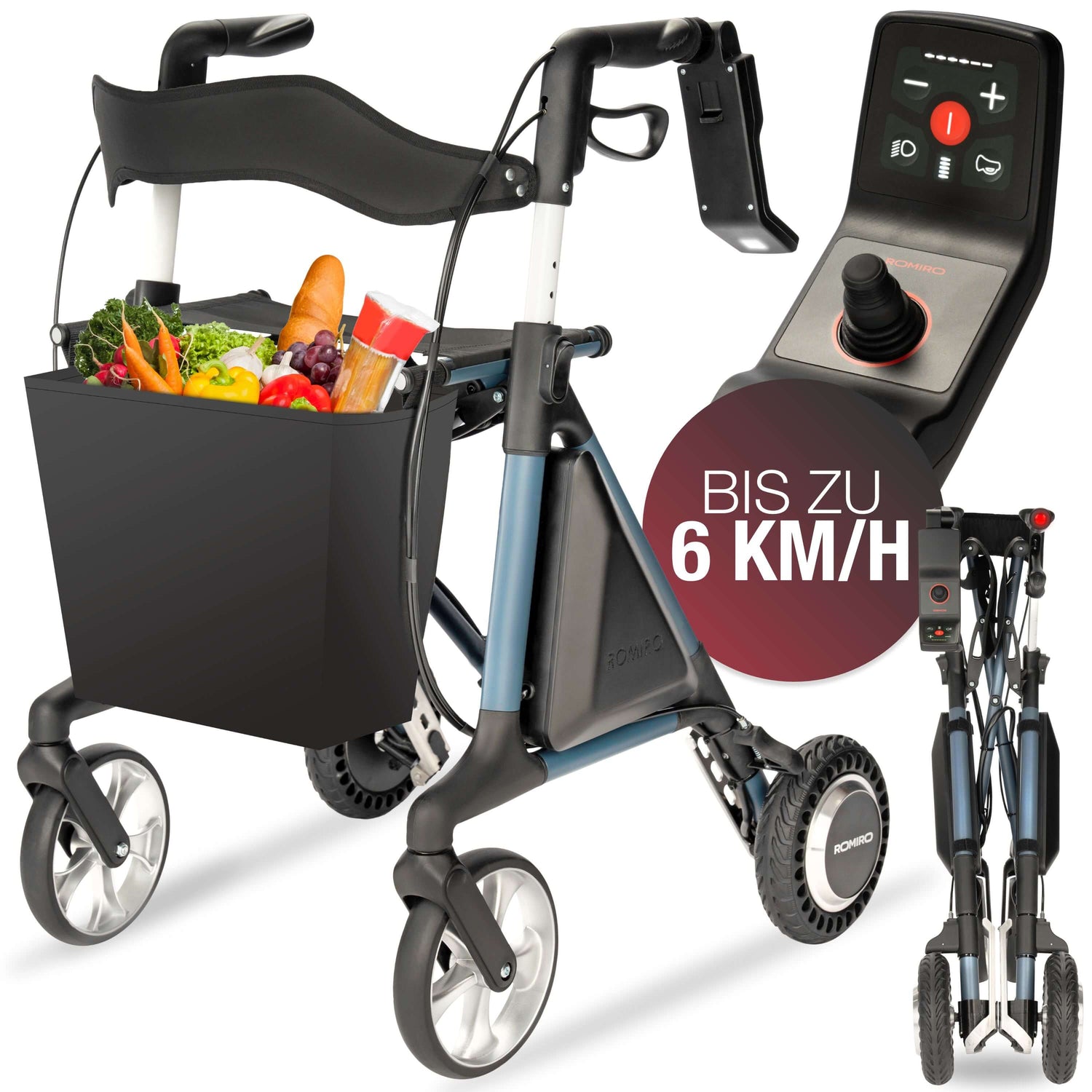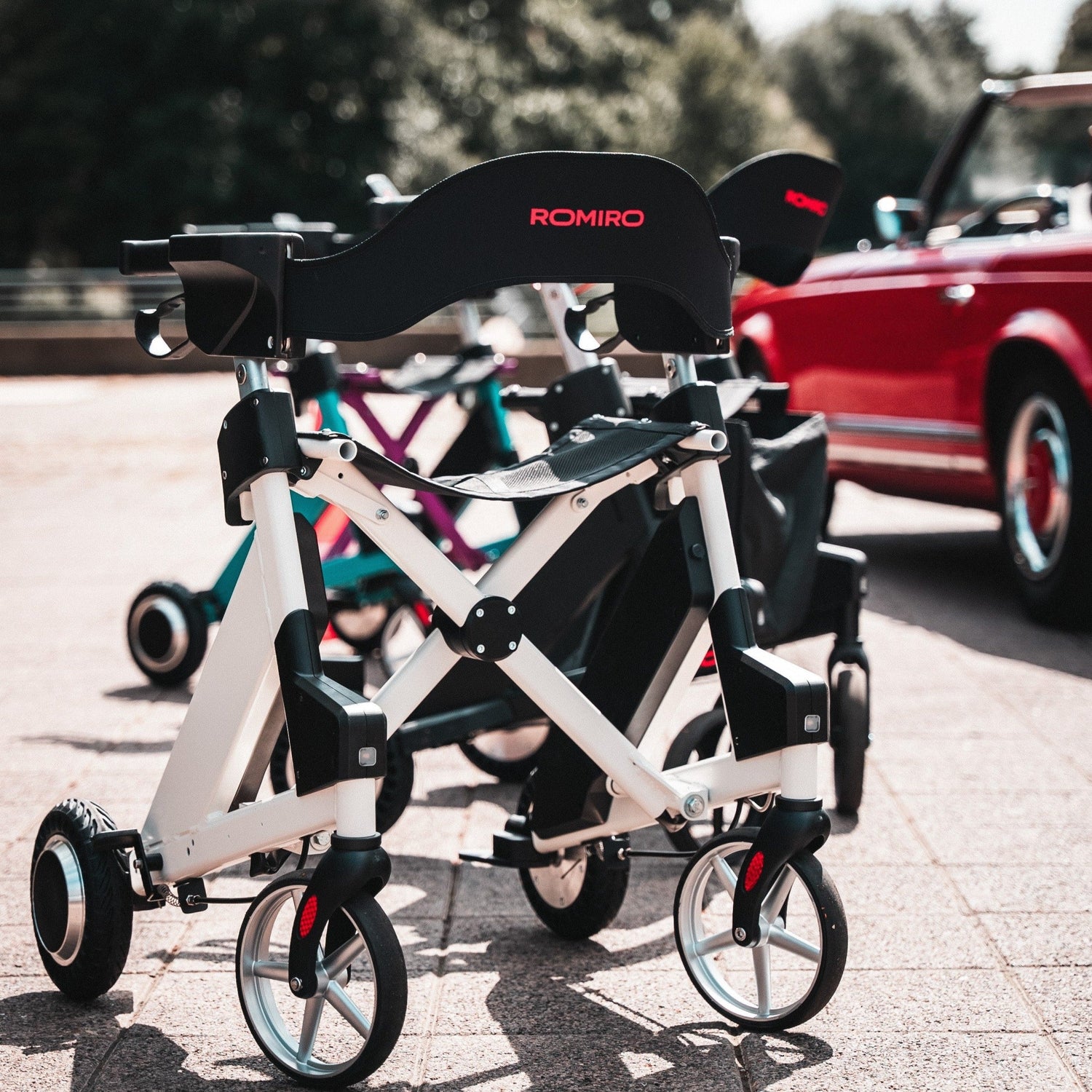
The guide for rollators and electric rollators ⚡
What is a rollator?
A rollator, often also called a walker, is a walking aid that supports the mobility of people with limited balance or walking difficulties. Unlike walking sticks or forearm supports, a rollator does not have to be lifted off the ground. It consists of a metal frame with four wheels and two handles for pushing and supporting.
Rollators are particularly popular with seniors, but they also offer mobility security to young people with disabilities.
Models at a glance
Rollators are available in different designs, each with specific advantages and disadvantages:
- Standard rollator : Stable and tip-proof, ideal for indoors and outdoors. However, it is a bit heavier and difficult to push on uneven terrain.
- Lightweight rollator : Made of aluminum or carbon, these models are easier to push and easy to transport. However, they are less stable.
- All-terrain rollator : With larger and profiled wheels, ideal for uneven terrain. However, these models are more expensive and wider.
- Delta rollator : Three-wheeled and narrow, ideal for tight living spaces, but less stable.
- Electric rollator (E-rollator) : With motor support for easier pushing, particularly useful for those with less physical strength. High price and not covered by health insurance.
Costs and financing
The costs for rollators vary depending on the model and equipment:
- Standard rollator : approx. 100 – 300 euros
- Lightweight rollator : Approx. 200 – 500 euros
- All-terrain rollator : Approx. 400 – 1,200 euros
- Delta rollator : Approx. 80 – 130 euros
- Electric rollator (E-rollator) : Approx. 3,000 – 3,500 euros
Health insurance companies often cover the costs for standard and lightweight rollators as well as delta rollators. However, costs for electric rollators are rarely covered.
Indoor rollators
Delta rollators or narrower standard rollators with folding function are recommended for use in the home. Models with plastic tires roll easily and require little pushing force, which makes them ideal for indoors.
Outdoor rollators
For outdoor use, off-road rollators with large, profiled wheels and possibly a disc brake are the best choice. They are robust and can handle uneven terrain without any problems. An electric rollator can also be a good choice, especially if you often have to cover longer distances.
Important purchase criteria
When purchasing a rollator you should consider the following criteria:
- Weight : A lighter rollator is easier to handle.
- Load capacity : Pay attention to the maximum user weight.
- Foldability : Convenient for transport and storage.
- Brakes : Must be easy to operate and reliable.
- Grip comfort : Ergonomic handles are important for prolonged use.
- Basket size : Relevant for shopping or transporting items.
Accessories for rollators
Useful accessories can significantly improve the functionality of a rollator:
- One-hand brake : For users with one-sided paralysis or limited hand strength.
- Forearm supports : Relieve the strain on the hands and support an upright posture.
- Back strap : Provides safety when sitting on the rollator.
- Basket and tray : For transporting objects.
- Lights and reflectors : Increase safety in the dark.
- Rain cape and umbrella holder : protection from bad weather.
The E-Rollator: Mobility with motor support
An electric rollator offers electrical support, which is particularly useful for people with limited physical strength. These models are ideal for outdoor use and can easily handle uneven terrain. However, they are more expensive and require more maintenance. There are currently only limited options for health insurance companies to cover the costs.
Future and innovation
Future developments in electric rollators include GPS functionality, better battery life and expanded use on uneven terrain. Models such as the Romiro are expected to be available from 2025 and offer innovative features for greater safety and comfort.
Conclusion
Choosing the right rollator depends largely on your individual needs. Whether for indoor use, uneven terrain or with additional motor support - there is a suitable model for every need. Weigh up the advantages and disadvantages carefully and seek advice from experts if in doubt.
A suitable rollator can significantly improve the quality of life and should therefore be chosen carefully.


